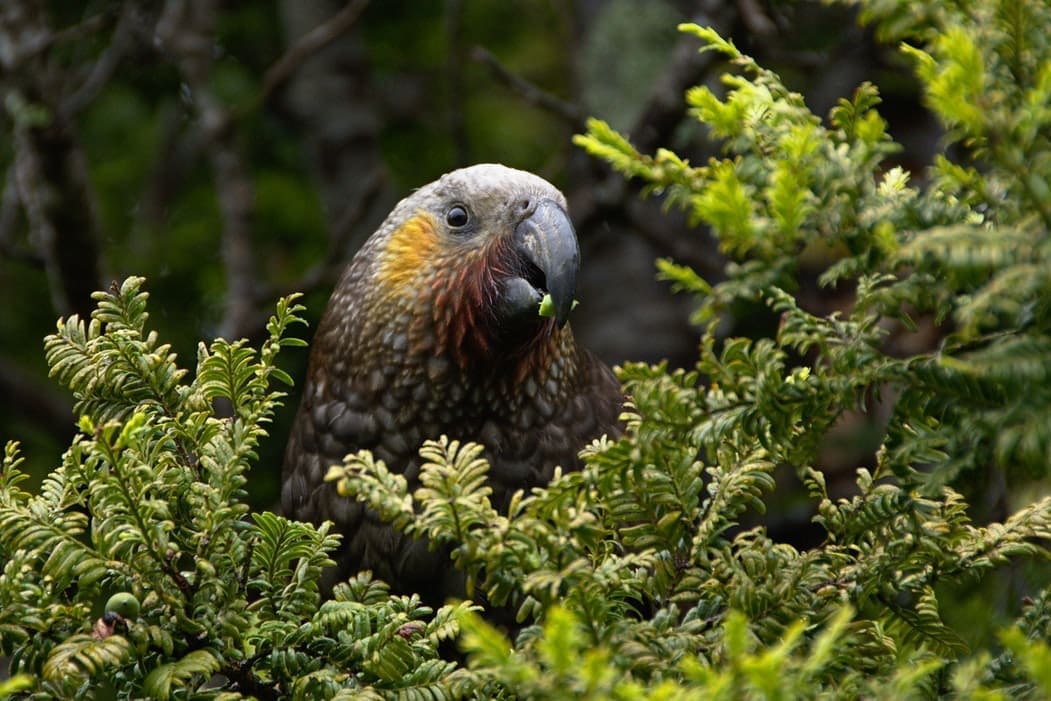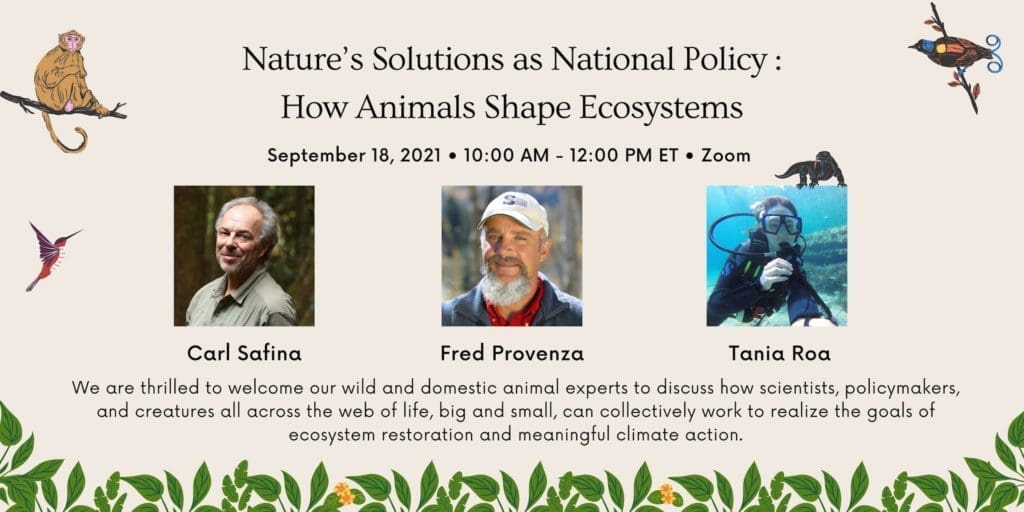
This September, Biodiversity for a Livable Climate continued its series of mini-conferences exploring how we can leverage nature’s solutions to shape policy on climate action and resilience. Our second installment focuses on animals and their crucial role in shaping ecosystems and supporting healthy functioning carbon, water, nutrient, and energy cycles.
Watch the video recording here:
You can also check out the first installment of this conference series from June 2021, featuring speakers Walter Jehne, Vijay Kumar, and Rep. Chellie Pingree, and the most recent installment Code Red at Glasgow: What did they miss? from November 2021.
Thousands of projects on six continents are endeavoring to cool our overheated planet and restore biodiversity loss by harnessing the power of photosynthesis, carbon sequestration and regeneration of degraded landscapes. Most of these efforts are not by governments or corporations, but by coalitions of researchers, farmers, fishermen, forest-dwellers, and village cooperatives. What would happen if this “Blessed Unrest” working to improve soils and fight climate warming were integrated into government policy on agriculture, fishing, water, and forests?
We are pleased to welcome Carl Safina, Fred Provenza and Tania Roa, who will discuss how scientists and policymakers wishing to realize the goals of ecosystem restoration and meaningful climate action must understand the important role of creatures all across the web of life, big and small.
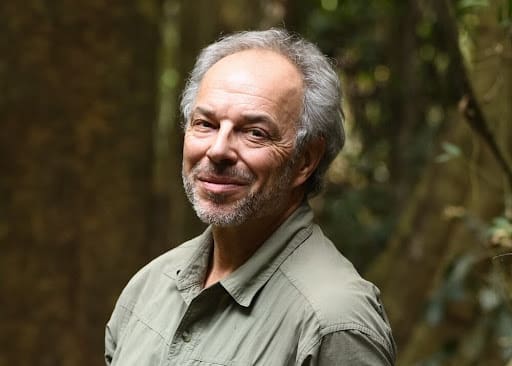
Carl Safina earned a PhD in ecology from Rutgers University by studying seabirds. Afterwards, he spent a decade working to ban high-seas drift nets and to overhaul U.S. fishing policy. His writing has appeared in The New York Times, TIME, Audubon, Huffington Post, National Geographic, and elsewhere. He has written many books on animals and the environment, including Song for the Blue Ocean and Becoming Wild: How Animal Cultures Raise Families, Create Beauty, and Achieve Peace. His writing has won numerous accolades, including a MacArthur “genius” prize, Pew, and Guggenheim Fellowships, and awards from Orion and the National Academies.
He hosted the PBS series Saving the Ocean, and continues to use his speaking skills to spread awareness for biodiversity conservation. He is now the first Endowed Professor for Nature and Humanity at Stony Brook University (where he formerly co-chaired the Alan Alda Center for Communicating Science), and he runs the not-for-profit Safina Center.
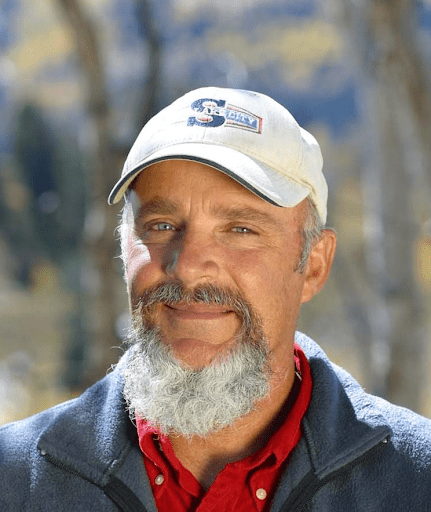
Fred Provenza grew up in Salida, Colorado, working on a ranch while studying Wildlife Biology at Colorado State University. He is professor emeritus of Behavioral Ecology in the Department of Wildland Resources at Utah State University, where he worked for 35 years directing an award-winning research group that pioneered an understanding of how learning influences foraging behavior and links soil, plants, herbivores, and humans.
He is one of the founders of BEHAVE, an international network of scientists, ranchers, farmers, and land managers committed to integrating behavioral principles with local knowledge to enhance environmental, economic, and cultural values of rural and urban communities.
He authored Nourishment: What Animals Can Teach Us about Rediscovering Our Nutritional Wisdom and Foraging Behavior: Managing to Survive in a World of Change. He has published over 300 research papers in a wide variety of scientific journals, and has spoken at over 500 conferences.
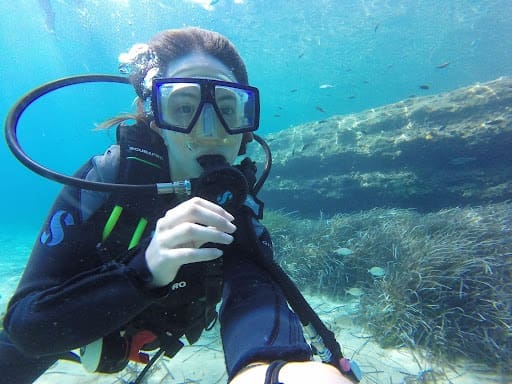
Tania Roa earned a Master of Science in Animals and Public Policy from Tufts University. She specialized in wildlife conservation and the connections between animal, human, and planet health. During the summer of 2020, her internship at World Animal Net gave her the opportunity to work with international animal welfare organizations and design digital campaigns urging the United Nations to include extensive biodiversity measures in their 2030 agenda for sustainable development.
As a PADI-certified Open Water diver and avid hiker, she uses her photography skills to demonstrate her love for the ocean and wildlife, and to spread awareness for ways everyone can get involved in the environmental movement. As a writer, she has written articles for digital magazines and blogs advocating for climate justice and adequate representation for historically marginalized communities.
At Biodiversity for a Livable Climate, she has a variety of roles including managing social media platforms, leading animal welfare campaigns, and next spring she will be teaching a course titled ‘Interdependence: How Human, Animal, and Planet Health Interconnect.’
Video is available here.

